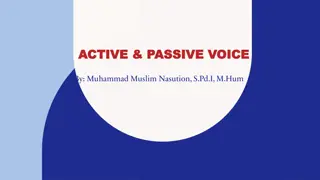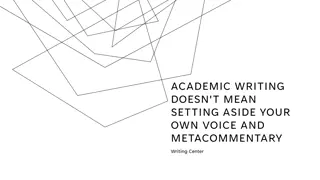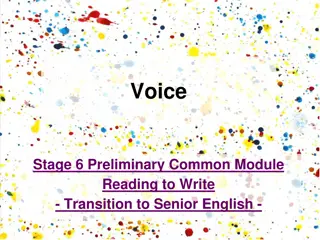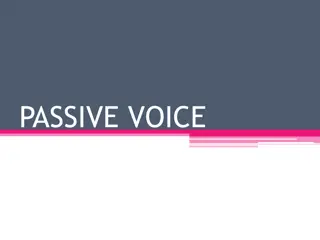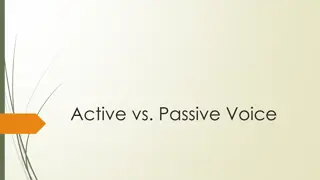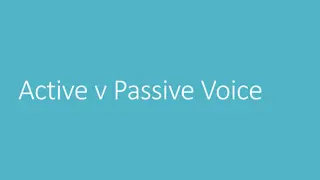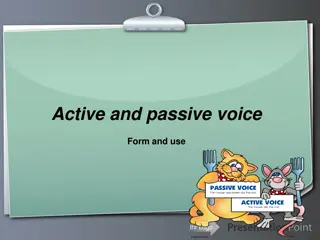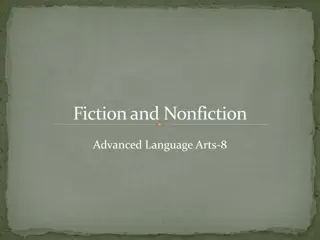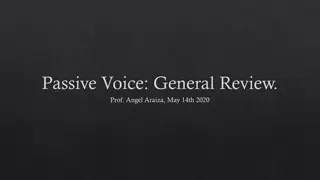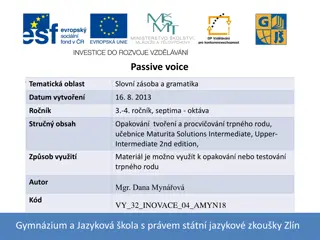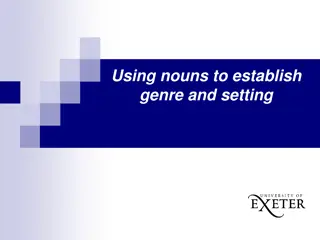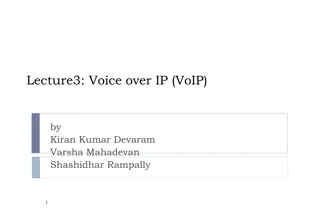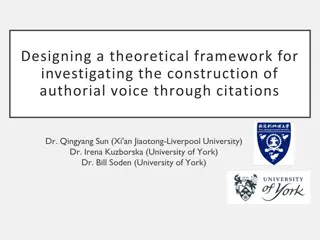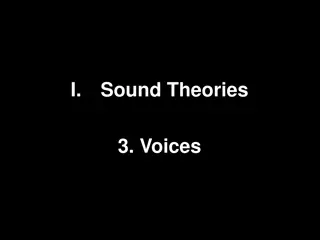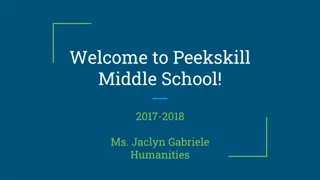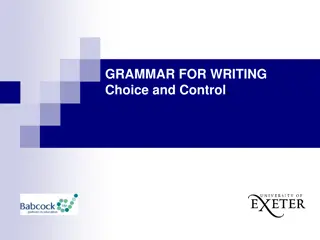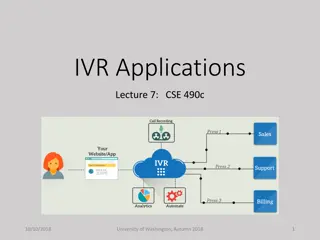Understanding Narrative Voice in Fiction Writing
Explore the elements of narrative voice in fiction writing, including tense, perspective, and language choices. Learn how authors decide on the tense and perspective for their stories, and consider different language styles that suit various characters and perspectives. Discover the nuances of first-person narrators and their variations. Dive into the world of textual analysis to comprehend how texts are constructed using methods like lexical analysis.
Download Presentation

Please find below an Image/Link to download the presentation.
The content on the website is provided AS IS for your information and personal use only. It may not be sold, licensed, or shared on other websites without obtaining consent from the author. Download presentation by click this link. If you encounter any issues during the download, it is possible that the publisher has removed the file from their server.
E N D
Presentation Transcript
Narrative Voice (the voice in which a story is told)
What is it? Narrative Voice describes one way that an author has decided to write their story. There are several factors that all writers must consider when they write fiction: What tense will it be written in? What perspective will it be written from? Reflect: What is tense? What is perspective? How can language differ? What kind of language will they use?
Tense Generally, we write in past, present or future tense. It is very difficult to sustain an engaging piece of fiction with future tense, so we re going to ignore that one for now. James felt a cold chill. The wind had sent it through him. James feels a cold chill as the wind whips up around him. As the wind howled all around him, James felt a cold chill. Write these down and identify which tense they are written in.
Perspective There are four major kinds of perspective: First person Second person Omniscient means all- knowing . As in a god-like perspective. Third person limited Third person omniscient Drawn a mind-map that explains what each of these perspectives are. You may create some examples to help demonstrate your ideas.
Language Choices Once an author has settled on the tense and perspective they ll be using, they will then think about the kind of language that best fits their story. Some examples: Colloquial language Dry, formal language Heavily descriptive language Simplistic language Angry, shocking language Emotionally detached What kind of characters and perspectives would these choices suit best?
A few extra tricky things (that we don t really have to worry about at this point but are interesting nonetheless!) First person narrator variations: Are they subjective? (giving their own opinion about things) Are they objective? (just a neutral bystander) Are they there while things happen, or are they just relating a story they heard? Are they a reliable narrator? Some famous books are written in first person and feature unreliable narrators. These are characters whose perspective of the world may be twisted or untrustworthy due to dishonesty or trauma. A famous example is Catcher in the Rye. A good film example of something similar is The Usual Suspects.
TEXTUAL ANALYSIS We can use numeracy to analyse the way a text has been constructed. One of these methods is a lexical density test. This measures how dense the text is in terms of using meaningful language. This is measured by counting every word in a sample of the text. Then we count every content item (verb, noun, adjective, adverb any word that means something) Divide the total word count by the content items, this will give you a percentage. 30-50% is low lexical density (using basic language) and 60-75% is high lexical density (using complex language). Another method is measuring grammatical intricacy, this refers to how varied the sentences are (is it all simple sentences? Complicated ones?) Count the amount of sentences in the sample of the text. Count the amount of clauses. How many clauses, on average, are there per sentence? This is the grammatical intricacy, and lets you see how simplistic or complex the sentences are on average.



